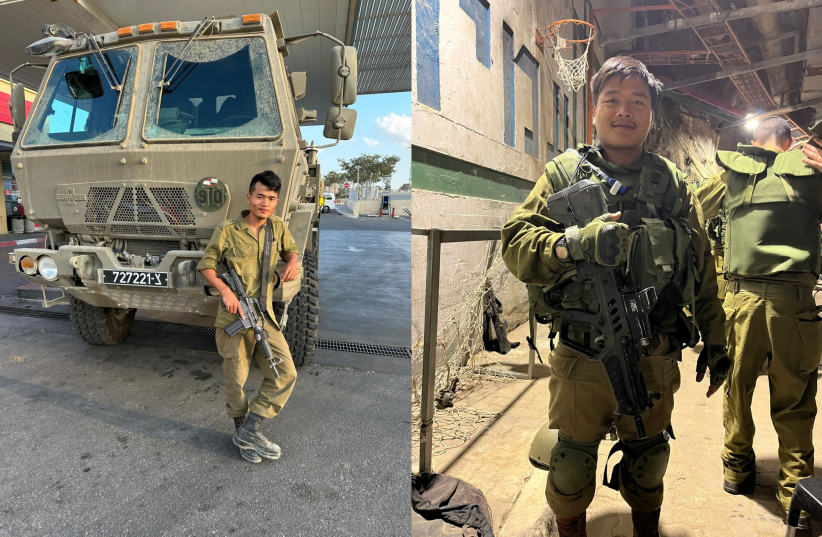Over 200 members of the Indian Jewish Bnei Menashe community have made Aliyah (immigrated) to Israel following the October 7th attack and have been called up for either reserve or active combat duty, as announced by the Shavei Israel nonprofit on Monday. Seventy-five of these recent immigrants from India have enlisted in combat units, while 140 were called up for reserve service across Israel.
Shavei Israel, a Jerusalem-based nonprofit founded by Michael Freund, is dedicated to ‘strengthening ties between Diaspora communities worldwide and the State of Israel’. For over two decades, the organization has lobbied for the mass immigration of the Bnei Menashe community, who claim to be descendants of one of the Lost Tribes of Israel.
Freund in May told The Jerusalem Post that “there are a total of about 5,000 Menashe people left in India who have been requesting to immigrate to Israel for many years.”
According to Shavei Israel, 99% of all men of military age who immigrated from India have joined Israel’s efforts against Hamas, while 90% of women have enrolled in National Service.
One member of the Bnei Menashe community, 26-year-old Natanel Touthang, who serves in the Givati Brigade, was wounded by shrapnel from a Hezbollah rocket fired at Israel’s North.
“Since the war broke out, Shavei Israel has received hundreds of requests from young community members in northeastern India asking to make Aliyah immediately,” Freund said. “Not only that – they are asking to join the IDF immediately to fight shoulder to shoulder with their brothers and sisters.”
The Bnei Menashe community, composed of various Tibeto-Burmese ethnic groups from the India-Burma border region, claims descent from one of the Lost Tribes of Israel and has embraced Judaism. The community counts around 10,000 members.
The movement’s origins trace back to 1951 when a tribal leader reported having a dream suggesting that his people’s ancient homeland was Israel. This revelation led some tribal members to begin embracing the idea that they were Jews. Before the movement began, the community was primarily Christian. Bnei Menashe members hail from ethnic groups such as Chin, Kuki, and Mizo, among others.
In the late 20th century, Israeli rabbi Eliyahu Avichail of the group Amishav named these people the “Bnei Menashe” based on their account of descent from Menasseh. While DNA testing in 2003–2004 did not conclusively confirm Middle Eastern ancestry, a Kolkata-based study in 2005 found evidence of maternally descended Near Eastern ancestry, suggesting intermarriage between Near and Middle Eastern peoples over thousands of years.
In the early 21st century, Israel temporarily halted immigration by the Bnei Menashe, but after a change in government policy, the immigration process resumed. The chief rabbi of Israel officially recognized the Bnei Menashe as part of a lost tribe in 2005. Upon completing the formal conversion process, they are allowed Aliyah, or immigration, to Israel.



























































